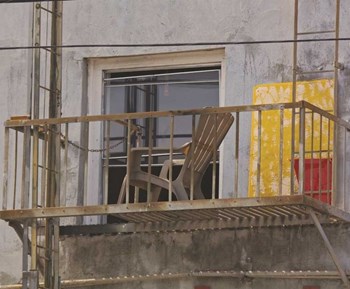
Despite the due diligence of boards and property managers, building code violations can occur during routine inspections—be it a faulty pipe, broken step or rusted fire escape. It is the speed and accuracy of addressing these infractions which is critical, although frequent problems are often overlooked, leading to costly headaches.
Common Offenders
The list of most cited co-op and condominium violations includes improper repair to masonry and walls, obstruction to entry and exit ways, working without a permit and failing to comply with elevator inspections. “Other common violations include failure to perform annual boiler and burner inspection, failure to perform an annual elevator inspection and failure to perform a facade safety inspection,” says Yakov Saric, president of City Drafters and Consultants, LLC, a building code and zoning consulting firm that provides expediting services with various city agencies.
While all boards and managing agents must adhere to rules and regulations clearly spelled out in the New York City Department of Buildings (DOB) Building Code, Electrical Code, Zoning Resolution, New York State Labor Law and New York State Multiple Dwelling Law, the purpose of building code violations, and their enforcement, is not merely to maintain a building in proper working order but to mitigate risk. “There, of course, is the issue of liability,” says attorney Ronald Steinvurzel of the White Plains-based Steinvurzel Law Group P.C. “But the amount of violations levied on a daily basis is far more than one might think, some of which come with hefty fines.”
Who is Watching Who?
Since most boards and managing agents want to be in compliance to avoid liability and reduce the risk of paying fines, the majority do their respective best to stay ahead of the curve. The problem is that an area of a building that was checked weeks or months earlier could fail for a number of reasons and officials are keeping a consistently watchful eye.
“Lately, I have been seeing a lot of fire department violations,” says Attorney Andrew Freedland with the Manhattan-based law firm of Rosen Livingston & Cholst LLP. “But I also see landmark violations and DOB violations,” he says, referring to the Department of Buildings, the Landmarks Preservation Commission (LPC) and the Fire Department of New York (FDNY).
In most cases, the DOB enforces the building code and zoning regulations, explains Mercedes Hernandez, president of S & M Enterprises, a building and zoning code consulting firm. “If someone calls 311 with a complaint, the department will send an inspector out,” she says. “If complaint is valid, a violation is issued.”
A violation often ends up before the ECB or the Environmental Control Board. The ECB is an independent administrative tribunal where judges hear cases on potential violations and determine if fines should be issued. Thirteen different city agencies write quality-of-life tickets and file them with the ECB to be adjudicated. An ECB decision may be appealed.
Comprendez?
When it comes to education, Steinvurzel says proactive board members trying to understand building code regulations can be easily confused as there is a steep learning curve. “The city does offer fairly simple, easy to read and understand practice guides that can help people new to the process,” he says. “It is best when facing a violation though to rely on a representative such as an attorney that has invaluable experience in the field.”
Even the best-run building could overlook or miss a violation, and in essence, open the proverbial Pandora’s Box. “I think proactive building management goes a long way. Making sure you hire good contractors who do work properly and work within the codes,” says Freedland. “However, to some extent, I think it’s impossible to completely avoid receiving violations. If an inspector visits even the best-run building, I think they are bound to find a few code violations if they look hard enough.”
While perhaps a tempting excuse, a board or managing agent that tries to plead ignorance or tries to pass the blame to subcontracted architects or engineers is not a viable defense. “The policies and procedures are constantly changing but only experienced and dedicated professionals who work with city agencies can provide a proper service,” says Saric. “Some companies provide monitoring and alerts, some are just waiting to be hired.”
Receiving Bad News
While it is not pleasant to receive notice of a building violation, it is a common occurrence which seasoned board members and managing agents should expect. There are protocols in place to lessen the blow and streamline corrective efforts.
“Typically the violations come in the mail, served through the secretary of state. This is one reason it’s important to make sure the secretary of state has up to date contact info for the building—an address for service of process. If a violation is sent to an old address or former managing agent, it may never be received and the co-op or condo will be defaulted at the hearing for not appearing,” says Freedland. “The default penalty is significantly higher than the penalty which is available for appearing and entering a guilty plea. In some cases, buildings have only found out about a violation after a default judgment has been entered, and it can be difficult, if not impossible to vacate the default,” he adds.
The first question a board usually has is when the penalty accrues and if there are ways to mediate problems before a check is written to the city. “In most cases, a co-op or condo board can avoid paying fines if they repair the violations before the hearing date,” says Steinvurzel.
Saric adds that in each borough the DOB offers a “homeowner’s night” one day a week where issues can be discussed with DOB plan examiners and professionals. “DOB has great materials available online to guide homeowners and boards through the maze of requirements and regulations,” he says.
The best option, says Hernandez, is to not do unauthorized work. “It is best to ensure that all work requiring permits gets filed with the DOB.”
While certain violations are considered minor and “fixable” without fines, there are other more serious violations classified in a particular “category” and “class” that do not have a “cure” process, explains Freedland. The DOB states, for example, that if a building receives an immediately hazardous (Class 1) Environmental Control Board violation, it must immediately correct the violating condition and submit a Certificate of Correction to the department. Failure to correct the ECB violation will result in issuance of a DOB violation with a $1,500 civil penalty. The civil penalty is in addition to penalties assessed by the Environmental Control Board.
In certain cases, a dispute will arise regarding a board accusing the managing agent of failure to notify them of the building code violation. These scenarios are not all that common but can be a tricky and expensive game of “he said, she said.” This argument is usually reserved for the courts. “If a manager or the board becomes aware of a violation they have a duty to correct it as soon as possible. Of course the more serious the violation, the more expeditiously it should be corrected,” says Freedland. “The board/manager could be liable for not correcting a violation, if some type of injury is sustained as a result of their negligence. In many cases, they may be covered by insurance.”
Going to Court or Going to Trial?
Even if a proactive board or manager is addressing the violation, when a building receives notice, it states that the owner, or property manager on record, must appear for a hearing. “These violations go to trial fairly often,” says Steinvurzel. He explains that the majority of violations will be heard by the ECB. Judges hear cases, just like a court, with certain distinct operational differences.
For example, DOB notes that “the ECB only hears cases in which New York City has charged a person or business with violating city laws that protect health, safety, and a clean environment. These violations are not crimes. If you are found guilty of an ECB violation, you need to pay a fine. You may also be ordered to fix the violation(s).”
In many cases, especially during construction, a building or property may receive numerous code violations. These violations may run the gamut from Class 1 (Immediately Hazardous), Class 2 (Major) or Class 3 (Lesser). “Every citation carries a maximum of $10,000 per citation,” says Steinvurzel. In this case, a mediation process is entered by opposing attorneys at which point a “stipulated penalty offer” is reached.
“Whereas there might be seven violations totaling $70,000, an agreement may be reached where four of the seven are overturned and a lesser amount is paid on the remaining three violations,” says Steinvurzel. “At this stage, it would be crazy not being represented by an attorney because he or she will get a much better deal than is originally offered.”
The most common result is that the co-op board or the community association agrees to remedy the code violation within a specific period of time and pay a negotiated fine. The case is then continued until a court ordered date is offered for compliance. An inspector will then revisit the property to insure that the violation has been remedied. If it has, the case is usually dismissed and the fine is paid.
Even though a violation and case is considered cleared by the city, a record, tantamount to points on a driver’s license, will exist, which is available for all to see. “The DOB has a Building Information System (BIS) where homeowners and board members can see all the DOB and ECB violations,” says Saric. Additionally, he notes that the Department of Housing Preservation & Development (HPD) has a web portal listing all housing maintenance violations. “In many cases, a building will correct a violation but do not take the next step of having it removed as of record, which can create problems when they refinance their building mortgage,” notes Freedland.
In the end, keen oversight coupled with building code knowledge will avoid most trips to court and more often than not save unnecessary expenditures in the way of steep fines.
W.B. King is a freelance writer and a frequent contributor to The Cooperator.






2 Comments
Leave a Comment